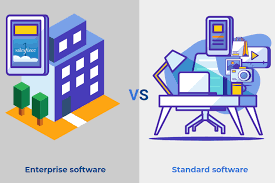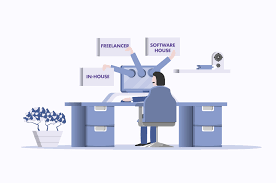The Importance of Cybersecurity Consulting for Businesses
The Importance of Cybersecurity Consulting for Businesses
In today’s digital age, cybersecurity is a critical concern for businesses of all sizes. With the increasing number of cyber threats and data breaches, it has become essential for companies to prioritize their cybersecurity measures. This is where cybersecurity consulting firms play a crucial role in helping businesses protect their sensitive information and maintain the integrity of their systems.
What is Cybersecurity Consulting?
Cybersecurity consulting involves working with experts who specialize in identifying vulnerabilities in a company’s IT infrastructure, developing security strategies, implementing protective measures, and providing ongoing support and monitoring. These consultants are trained to assess risks, detect potential threats, and recommend solutions to enhance the overall security posture of an organization.
The Benefits of Cybersecurity Consulting
Engaging with a cybersecurity consulting firm offers several benefits to businesses:
- Risk Assessment: Consultants conduct thorough assessments to identify weaknesses and vulnerabilities in the company’s systems.
- Customized Solutions: Consultants develop tailored security solutions that address the specific needs and challenges faced by the business.
- 24/7 Monitoring: Many consulting firms provide continuous monitoring services to detect and respond to security incidents promptly.
- Compliance Assistance: Consultants help businesses adhere to industry regulations and standards related to data protection.
- Incident Response: In the event of a security breach, consultants assist in investigating the incident, mitigating damage, and implementing preventive measures for the future.
Choosing the Right Cybersecurity Consulting Firm
When selecting a cybersecurity consulting firm for your business, consider the following factors:
- Experience: Look for firms with a proven track record of success in providing cybersecurity services.
- Certifications: Ensure that consultants hold relevant certifications such as Certified Information Systems Security Professional (CISSP) or Certified Ethical Hacker (CEH).
- Reputation: Check client reviews and testimonials to gauge the firm’s reputation and reliability.
- Services Offered: Choose a firm that offers a comprehensive range of cybersecurity services tailored to your business needs.
In Conclusion
Cybersecurity consulting is an indispensable investment for businesses looking to safeguard their digital assets and maintain trust with their customers. By partnering with experienced consultants, companies can strengthen their defenses against cyber threats and ensure the resilience of their IT infrastructure in an increasingly interconnected world.
9 Benefits of a Cybersecurity Consulting Business: Protecting Your Data with Expertise and Efficiency
- Expertise in identifying and mitigating cybersecurity risks
- Customized security solutions tailored to the specific needs of each business
- Continuous monitoring to detect and respond to security incidents promptly
- Assistance in compliance with industry regulations and data protection standards
- Access to specialized tools and technologies for enhanced security measures
- Incident response support in the event of a security breach
- Training and awareness programs for employees to promote a culture of cybersecurity awareness
- Cost-effective compared to hiring full-time cybersecurity staff internally
- Peace of mind knowing that sensitive data is protected by professionals
Challenges of Engaging Cybersecurity Consulting Services: Cost, Trust, and Implementation
- Costly services may not be affordable for small businesses.
- Dependence on external consultants can lead to delays in response to security incidents.
- Potential conflicts of interest if the consulting firm is also affiliated with cybersecurity product vendors.
- Difficulty in finding a reputable and trustworthy consulting firm among the multitude of options available.
- Limited availability of specialized cybersecurity consultants with expertise in niche areas.
- Complexity of implementing recommended security measures and integrating them into existing IT systems.
Expertise in identifying and mitigating cybersecurity risks
Cybersecurity consulting firms offer invaluable expertise in identifying and mitigating cybersecurity risks, a crucial pro that can significantly enhance a business’s security posture. These experts possess the knowledge and tools to conduct thorough assessments of an organization’s IT infrastructure, pinpoint vulnerabilities, and develop effective strategies to address potential threats. By leveraging their specialized skills and experience, cybersecurity consultants can help businesses proactively protect their sensitive data, mitigate risks, and strengthen their overall cybersecurity defenses against evolving cyber threats.
Customized security solutions tailored to the specific needs of each business
Cybersecurity consulting firms offer a significant advantage by providing customized security solutions that are tailored to the unique needs of each business. This personalized approach ensures that companies receive targeted strategies and measures that address their specific vulnerabilities and challenges. By understanding the intricacies of a business’s IT infrastructure and operations, cybersecurity consultants can develop bespoke security plans that effectively mitigate risks and enhance overall protection. This tailored approach not only optimizes security measures but also reflects a proactive commitment to safeguarding the integrity of each client’s digital assets.
Continuous monitoring to detect and respond to security incidents promptly
Continuous monitoring provided by cybersecurity consulting firms is a valuable pro that enables businesses to swiftly detect and respond to security incidents. By implementing real-time monitoring tools and processes, consultants can identify potential threats as they occur, allowing for immediate action to mitigate risks and prevent further damage. This proactive approach not only enhances the overall security posture of the organization but also minimizes the impact of cybersecurity breaches, ultimately safeguarding sensitive data and preserving business continuity.
Assistance in compliance with industry regulations and data protection standards
Cybersecurity consulting firms provide valuable assistance to businesses by ensuring compliance with industry regulations and data protection standards. These experts have in-depth knowledge of the legal requirements and best practices related to cybersecurity, enabling them to guide companies in implementing the necessary measures to meet regulatory obligations. By partnering with cybersecurity consultants, businesses can mitigate the risk of non-compliance, protect sensitive information, and build trust with customers by demonstrating a commitment to safeguarding data privacy and security.
Cybersecurity consulting firms offer businesses access to specialized tools and technologies that are specifically designed to enhance security measures. These advanced tools go beyond traditional security software and provide robust solutions for identifying vulnerabilities, detecting threats, and responding to cyber incidents effectively. By leveraging these cutting-edge technologies, businesses can strengthen their defenses against evolving cyber threats and safeguard their sensitive data with greater confidence and efficiency.
Incident response support in the event of a security breach
Incident response support is a crucial advantage of cybersecurity consulting services, especially in the event of a security breach. Cybersecurity consultants are equipped to swiftly and effectively respond to security incidents, minimizing the impact of the breach and mitigating further risks. Their expertise allows them to investigate the breach, identify the root cause, contain the damage, restore systems to normalcy, and implement preventive measures to prevent future breaches. This proactive approach not only helps businesses recover from security incidents efficiently but also strengthens their overall cybersecurity posture for enhanced protection against potential threats.
Training and awareness programs for employees are a valuable aspect of cybersecurity consulting services. By educating staff on best practices, potential risks, and how to identify and respond to security threats, businesses can cultivate a culture of cybersecurity awareness within their organization. These programs empower employees to play an active role in safeguarding sensitive data and systems, reducing the likelihood of human error leading to security breaches. With proper training and ongoing awareness initiatives, companies can enhance their overall security posture and create a more resilient defense against cyber threats.
Cost-effective compared to hiring full-time cybersecurity staff internally
One significant advantage of cybersecurity consulting services is their cost-effectiveness when compared to hiring full-time cybersecurity staff internally. By engaging a consulting firm, businesses can access a team of experienced professionals without the overhead costs associated with recruiting, training, and retaining in-house cybersecurity experts. Consulting firms offer flexible service options that allow companies to scale their security needs according to their requirements, ultimately saving on expenses while still receiving top-notch cybersecurity expertise and support.
Peace of mind knowing that sensitive data is protected by professionals
Entrusting your cybersecurity needs to a consulting firm provides a sense of peace of mind, knowing that your sensitive data is in the hands of experienced professionals. These experts are dedicated to safeguarding your information and implementing robust security measures to prevent unauthorized access and potential breaches. By relying on their expertise, businesses can focus on their core operations with confidence, knowing that their valuable data is being protected by knowledgeable professionals who prioritize the confidentiality and integrity of their digital assets.
Costly services may not be affordable for small businesses.
In the realm of cybersecurity consulting, a notable drawback is the potential high cost of services, which could pose a significant challenge for small businesses with limited budgets. The expenses associated with engaging cybersecurity consultants, implementing security measures, and maintaining ongoing support may exceed the financial capabilities of smaller enterprises. This affordability gap raises concerns about the accessibility of essential cybersecurity expertise and resources for businesses operating on a smaller scale, highlighting the need for cost-effective solutions tailored to accommodate the budget constraints of such organizations.
Dependence on external consultants can lead to delays in response to security incidents.
Dependence on external cybersecurity consulting firms can potentially result in delays in responding to security incidents within a business. Relying solely on external consultants may introduce communication barriers and procedural complexities that hinder swift incident response. In some cases, the need to engage with external parties for every security issue can lead to extended response times, leaving the organization vulnerable to prolonged exposure to cyber threats. It is crucial for businesses to strike a balance between leveraging external expertise and building internal capabilities to ensure timely and effective responses to security incidents.
Potential conflicts of interest if the consulting firm is also affiliated with cybersecurity product vendors.
Potential conflicts of interest may arise in the cybersecurity consulting business if the consulting firm is affiliated with cybersecurity product vendors. In such cases, there is a risk that the consulting firm may prioritize promoting and selling products from their affiliated vendors over providing unbiased advice tailored to the client’s specific needs. This conflict of interest could compromise the integrity of the consulting services and lead to recommendations that may not necessarily be in the best interest of the client’s cybersecurity posture. Businesses should be cautious when engaging with consulting firms that have close ties to cybersecurity product vendors to ensure that they receive impartial and objective guidance for their security needs.
Difficulty in finding a reputable and trustworthy consulting firm among the multitude of options available.
In the realm of cybersecurity consulting, a significant challenge that businesses face is the difficulty in identifying a reputable and trustworthy consulting firm from the vast array of options available in the market. With numerous firms claiming expertise in cybersecurity, distinguishing between genuine experts and those lacking credibility can be a daunting task. This con highlights the importance of thorough research, vetting processes, and seeking recommendations to ensure that businesses partner with a consulting firm that possesses the necessary skills, experience, and integrity to effectively safeguard their digital assets.
Limited availability of specialized cybersecurity consultants with expertise in niche areas.
The con of cybersecurity consulting business lies in the limited availability of specialized cybersecurity consultants with expertise in niche areas. As the field of cybersecurity continues to evolve and diversify, businesses may struggle to find consultants who possess in-depth knowledge and experience in specific, specialized areas of cybersecurity. This scarcity can hinder companies seeking tailored solutions to address unique security challenges, potentially leading to delays in implementing effective cybersecurity measures and leaving organizations vulnerable to sophisticated cyber threats that require niche expertise for mitigation.
Complexity of implementing recommended security measures and integrating them into existing IT systems.
The complexity of implementing recommended security measures and integrating them into existing IT systems poses a significant challenge for businesses engaging in cybersecurity consulting. The intricacies involved in aligning security protocols with the organization’s current infrastructure can lead to disruptions, compatibility issues, and potential downtime. It requires careful planning, coordination, and expertise to ensure a smooth transition while maintaining the integrity and functionality of the IT systems. Overcoming this con demands meticulous attention to detail, thorough testing, and ongoing monitoring to effectively fortify the company’s defenses against cyber threats without compromising operational efficiency.







